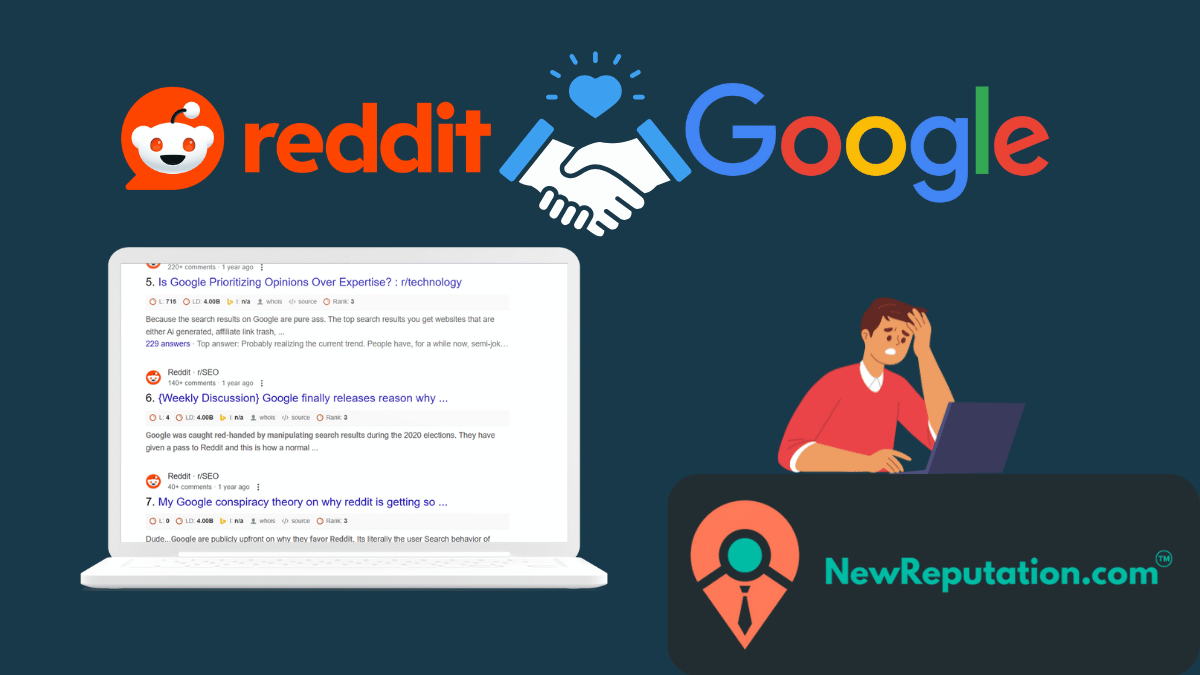You’ve probably heard that firms should “listen to their customers.”
But what does that look like on the internet?
It involves keeping an eye on reviews and comments, which are the unedited feedback that may be found on Google, Yelp, Facebook, Twitter, TikTok, and even forums you may not know about.
It’s not safe to ignore them. A single unanswered bad review might lead to many more. On the other hand, keeping an eye on clients and responding in a clever way might make them brand supporters.
In this article, you’ll learn why it’s important to keep an eye on reviews and comments, what technologies make it easier, and how to respond to both praise and criticism in ways that establish trust.
Main Points
Businesses can find problems early, talk to customers, and enhance their online reputation by keeping an eye on reviews and comments.
Reviews have a big impact on whether or not people buy something – more than 90% of people read them before they buy.
Tools like Google Alerts, social listening platforms, and review management software make it easier to keep track of things.
Ignoring reviews hurts trust, but responding appropriately to them, whether they are good or bad, builds trustworthiness.
Making monitoring a regular element of your reputation strategy is the key to long-term success.
What Does It Mean to “Monitor Reviews and Comments”?
It sounds like what it is: keeping track of what people say about your business on the internet.
There are more than simply Google reviews. Customers can talk about you on Instagram, give reviews on Yelp, share their experiences on Reddit, or leave comments on your adverts. All of these things affect how people see your brand.
Here’s a list of where reviews and comments usually show up:
- Google Business Profile: Reviews show up in search results and on Maps.
- Yelp, TripAdvisor, Healthgrades, Avvo, and Houzz are all review sites for certain fields.
- Social media: Comments on posts on Facebook, Instagram, TikTok, and Twitter.
- Community forums are places where people talk on Reddit, Quora, and Nextdoor.
- Blogs and news sites – mentions in stories or comments.
You could miss important information or a public relations disaster if you’re not paying attentively.
Why it’s important to keep an eye on reviews and comments
Reviews are more than just feedback. They are strong signs for marketing.
They affect the choices people make when they buy things. According to surveys, 93% of people examine online reviews before making a decision.
They change the results of searches. A lot of the time, Google shows star ratings right in the SERPs.
They move quickly. A popular TikTok review or Reddit post can get millions of views in a day.
They show you where you can’t see. Comments show problems that keep coming up that you might not see inside.
They affect trust. Being responsible means responding. Being quiet shows that you don’t care.
Think of two places to eat. One person doesn’t respond to a one-star comment on Yelp that says the staff is unpleasant. The other person says, “Sorry you had a bad experience. Please get in touch so we can fix this.” What would you want to eat for dinner?
How to Keep an Eye on Reviews and Comments
- Create Google Alerts
Fast and free. Make notifications for the names of your business, important employees, and products. You will get an email every time they are spoken about online.
2. Take ownership of your listings
Make sure you claim your business page on Google Business Profile, Yelp, TripAdvisor, and other sites that are specific to your field. This makes it possible to respond.
3. Use tools for social listening
Hootsuite, Sprout Social, and Mention can keep track of brand remarks across several networks in real time. Great for catching comments you might have missed.
4. Use platforms for managing your reputation
Podium, Birdeye, and ReviewTrackers are examples of tools that gather reviews from many sources into one dashboard. Perfect if you have to deal with more than one place.
5. Give someone a job
If your firm is bigger, you can’t do monitoring by yourself. Choose who reads reviews, writes replies, and gives them the thumbs up. Clear workflows keep things moving.
How to Answer Comments and Reviews
Finding reviews is only half the battle. Your response is just as important.
Bad Reviews
- Stay calm. Don’t become angry.
- Recognize the problem. Even if it seems unjust, let them know you’re listening.
- Give a solution. Ask them to get in touch with you personally to work things out.
- First, make it public, then private. Talk about it in public, but have more private chats.
Good Reviews
- Say thank you. A simple “thank you” means a lot.
- Make your answer your own. Talk about something specific they said.
- Promote loyalty. Tell them you want to see them again.
Feedback that is neutral or mixed
- Look at it as a chance. If someone gave you three stars, ask them what would have made it a five-star experience.
- Be flexible. Customers like firms that want to get better.
Keep in mind that your answers aren’t just for the reviewer. They’re for everyone who will read them in the future.
For more guidance, see The Power of Positive Feedback.
Case Studies: What Happens When You Ignore Feedback
The Arizona restaurant on Kitchen Nightmares, Amy’s Baking Company, fought back against reviewers online instead of fixing the problems. Their breakdown went viral, and the company went out of business.
A chain of hotels in New York: On the other hand, they answered every review on TripAdvisor, whether it was good or bad. Guests noticed, ratings went up, and more people reserved rooms.
The lesson? You have to keep an eye on reviews and comments. It’s the difference between a crisis and trust.
Making Monitoring a Growth Strategy
Don’t only think about fixing things. Customer reviews and comments are free research.
- Find trends. It’s not random if five individuals say the service is slow; it’s a pattern.
- Let people know about modifications to the product. Comments often point out ways to make things better that you hadn’t thought of.
- Make up ideas for content. Comments with questions can lead to FAQs, blog pieces, or how-to videos.
- Make social proof. With permission, use good reviews in your marketing materials.
When monitoring is done regularly, feedback can provide you an edge over your competitors.
Industry-specific strategies also matter. For example, see Reputation Management for Attorneys or Restaurant Reputation Management for tailored approaches.
Make it a habit to check reviews and comments.
It’s not enough to just read reviews now and then.
Reputation changes over time. Every day, new comments come in, and viral moments can grow quickly. That’s why it should be a regular thing.
Here’s a simple plan:
- Check Google, Yelp, and social media notifications every day.
- Check out industry-specific sites and forums once a week.
- Once a month, look at trends to see what’s getting better and what’s getting worse.
It’s like taking care of your car. If you don’t replace your oil, problems will build up. If you don’t keep an eye on things, tiny complaints can snowball into big problems for your reputation.
Questions and Answers
Do reviews truly make a difference in sales?
Yes. A 2023 survey indicated that 87% of customers would not use a business with an average rating of less than 3 stars.
Do I need to respond to every review?
Yes, it would be best. A brief “thank you” communicates that you are paying attention.
What if a review is bogus or meant to hurt?
Mark it on the platform and give proof. But don’t fight in public; it usually doesn’t work out.
Is it better to have more reviews or higher ratings?
Both are important, but volume makes it more credible. A firm with 500 reviews that average 4.2 stars is more likely to be trustworthy than one with five flawless reviews.
Final Thoughts
It’s not enough to just keep an eye on reviews and comments; you need to shape your brand’s story in real time.
Customers notice when you listen to, respond to, and act on their comments. You have their faith. They return. And they tell other people.
Customers will always shape your reputation, but you can choose whether or not to be part of the discourse.
So keep an eye on things today. It’s one of the easiest and most effective methods to keep your business safe and help it thrive.




